There is a wonderful photograph of Rosa Parks attending the National Black Political Convention in Gary, Indiana, in 1972. In this photo by LeRoy Henderson, Parks gazes admiringly at a poster of Malcolm X.
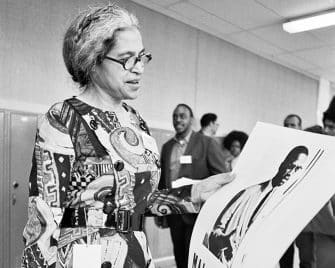
Rosa Parks at the National Black Political Convention in Gary, Indiana, March 1972. Credit: LeRoy W. Henderson
The Rebellious Life of Mrs. Rosa Parks, by Jeanne Theoharis, sheds light on Parks’ feelings about Malcolm X:
In the 1990s, Parks shocked Black-nationalist lawyer Chokwe Lumumba when she told him that her hero was Malcolm X.
Lumumba had assumed that her work and close personal relationship with Martin Luther King meant that he would be her personal inspiration. No, she clarified, she had certainly loved and admired King greatly, but Malcolm’s boldness and clarity, his affirmation of what needed to be done for Black people, made him her champion.
If you do a quick Google search for or flip through any textbook section about Rosa Parks, you will find her name tightly tethered to two words: civil rights. She is called “the mother of the Civil Rights Movement,” a “civil rights pioneer” and “civil rights icon.” She is described as a “civil rights activist” and often credited with “sparking the Civil Rights Movement.”
But Parks’ hero, Malcolm X, made a point of rejecting the mantle of “civil rights” as too limiting. The traditional curriculum portrays Malcolm X and the Black Power Movement as the evil twins of the Civil Rights Movement while over-simplifying the Civil Rights Movement and treating the Black Power Movement as “too hot to touch.”
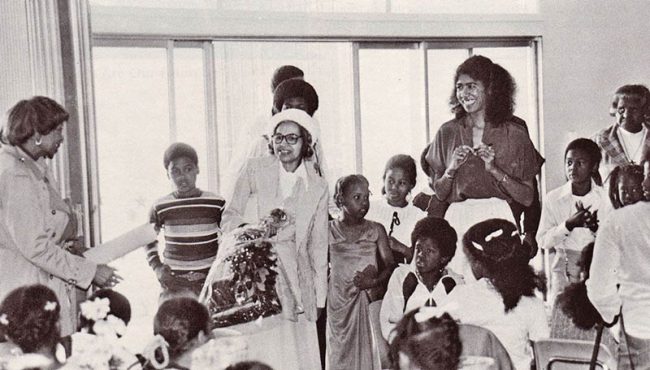
During the 1979–1980 school year, Mrs. Parks visited the Oakland Community School (OCS), an elementary school run by the Black Panther Party. Educator and Black Panther Party leader Ericka Huggins is the woman standing among the children. Photo by Donald Cunningham. Source: Ericka Huggins and Lisbet Tellefsen
As a result, students learn very little about the Black Power Movement and what is introduced is often reduced to images of unreasonable men with guns — with no connection to Rosa Parks.
In this lesson, students explore the core ideas of Black Power through a gallery walk with images and quotes connected to the life of Rosa Parks. After exploring Black Power beyond the media stereotypes, they consider how to define Rosa Parks’s activism.
This lesson is from the The Rebellious Life of Mrs. Rosa Parks Teaching Guide for classroom use. It is part of a collection of lessons to accompany the book and film of the same name.

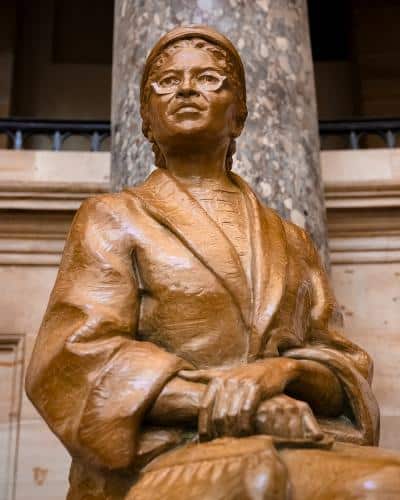
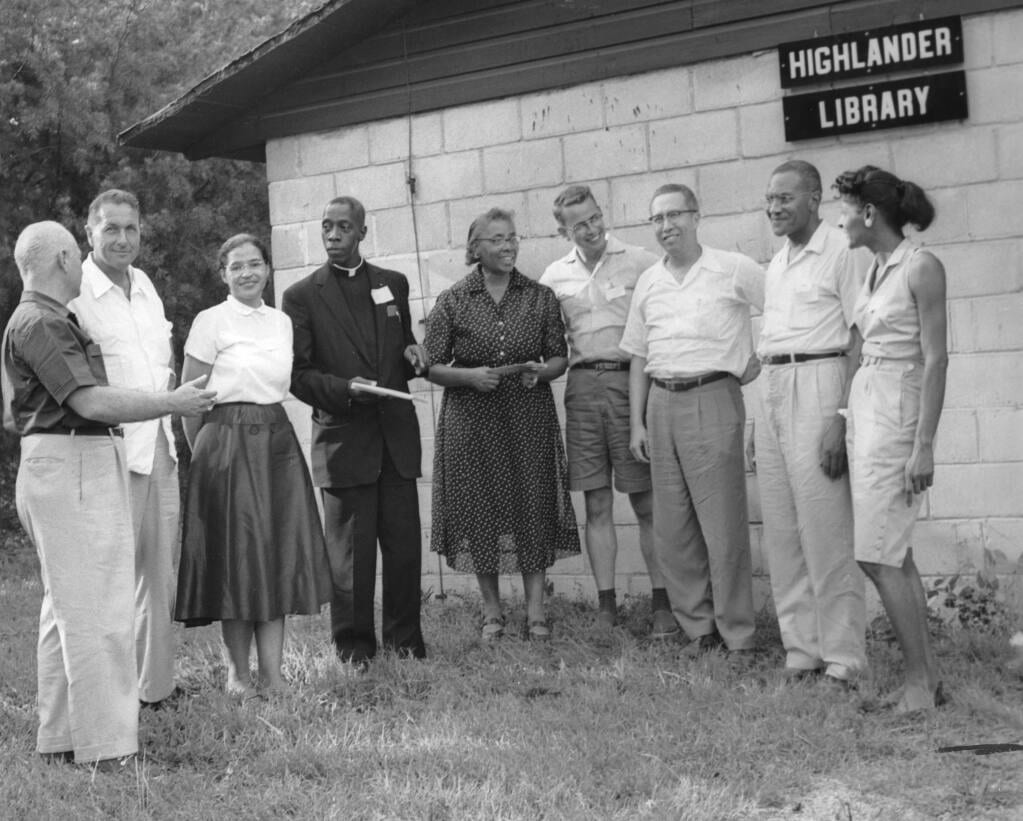
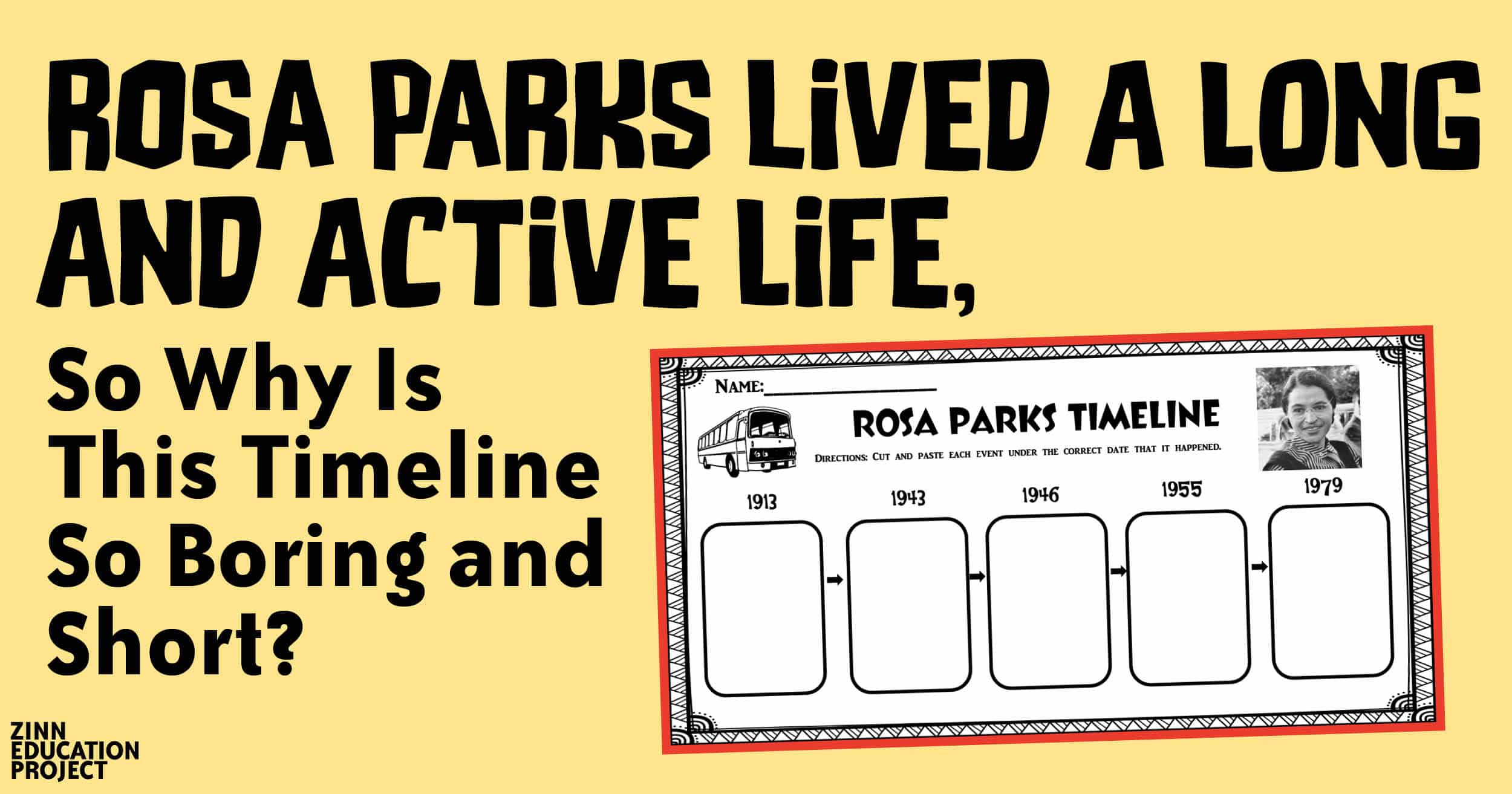
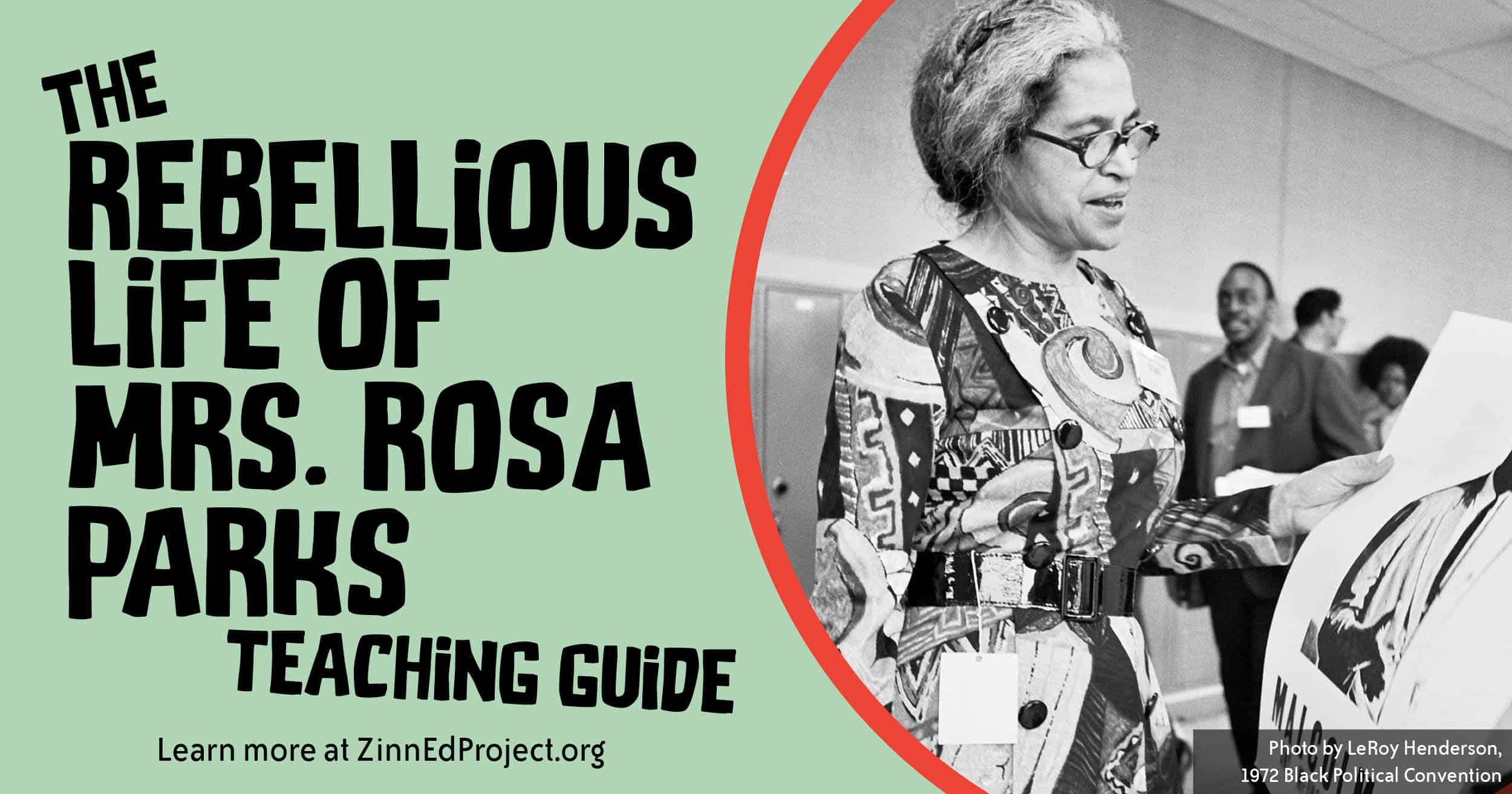
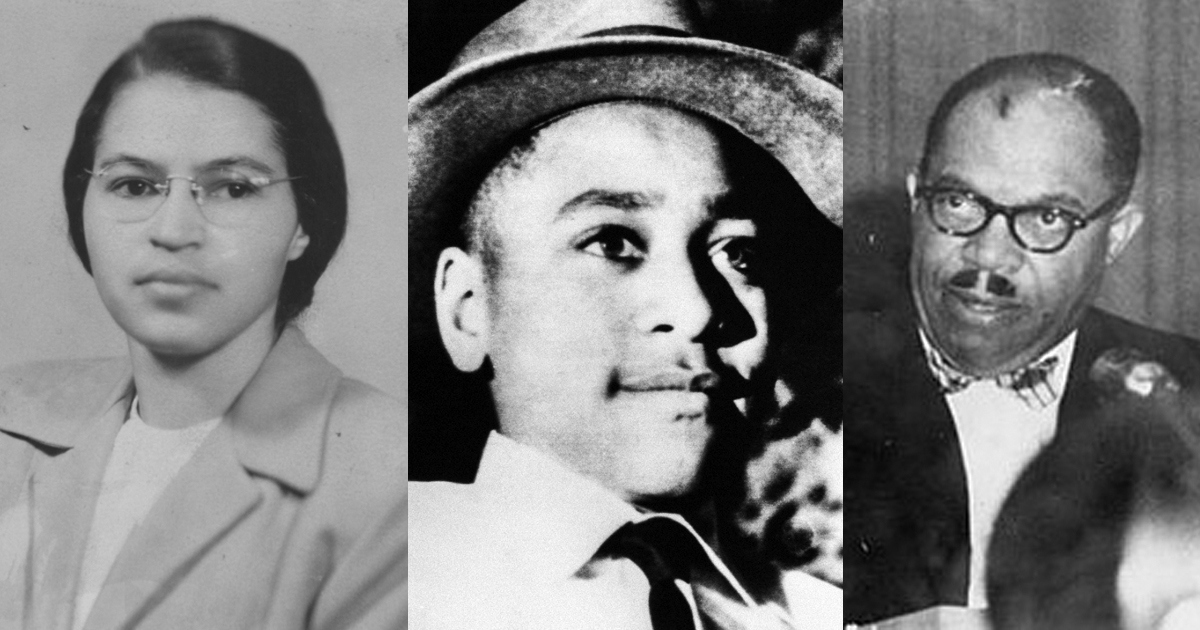
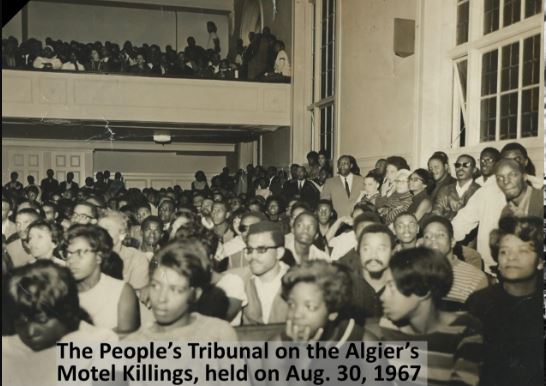
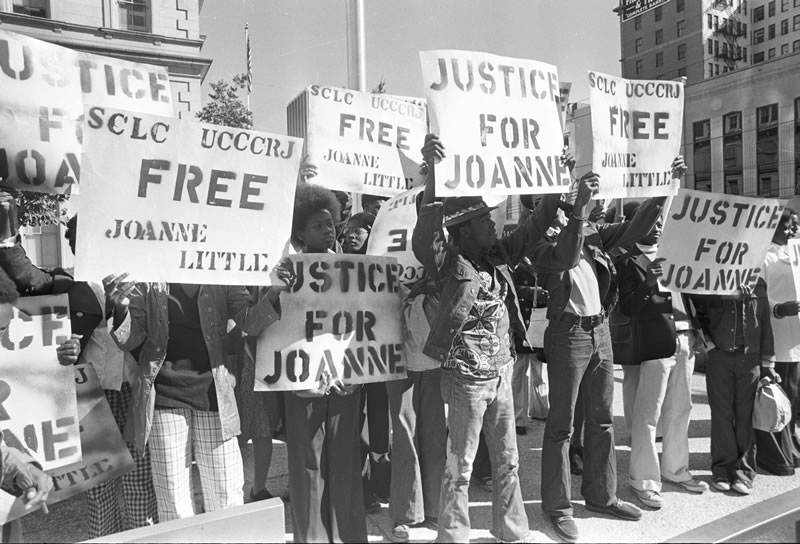






Twitter
Google plus
LinkedIn